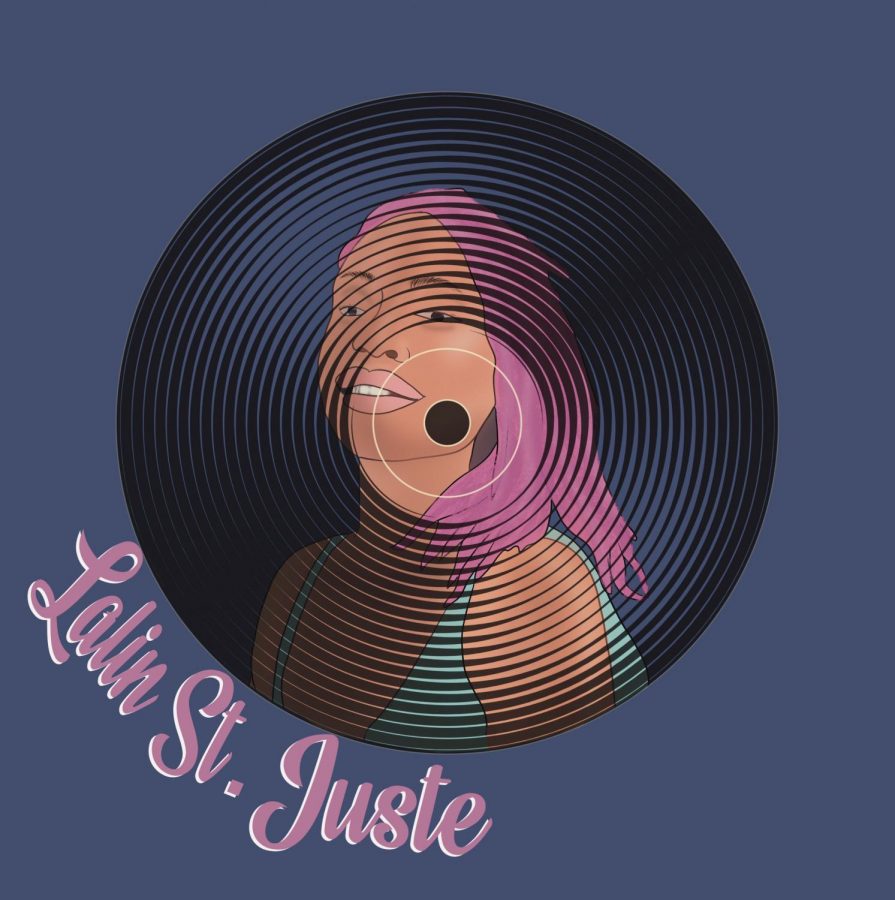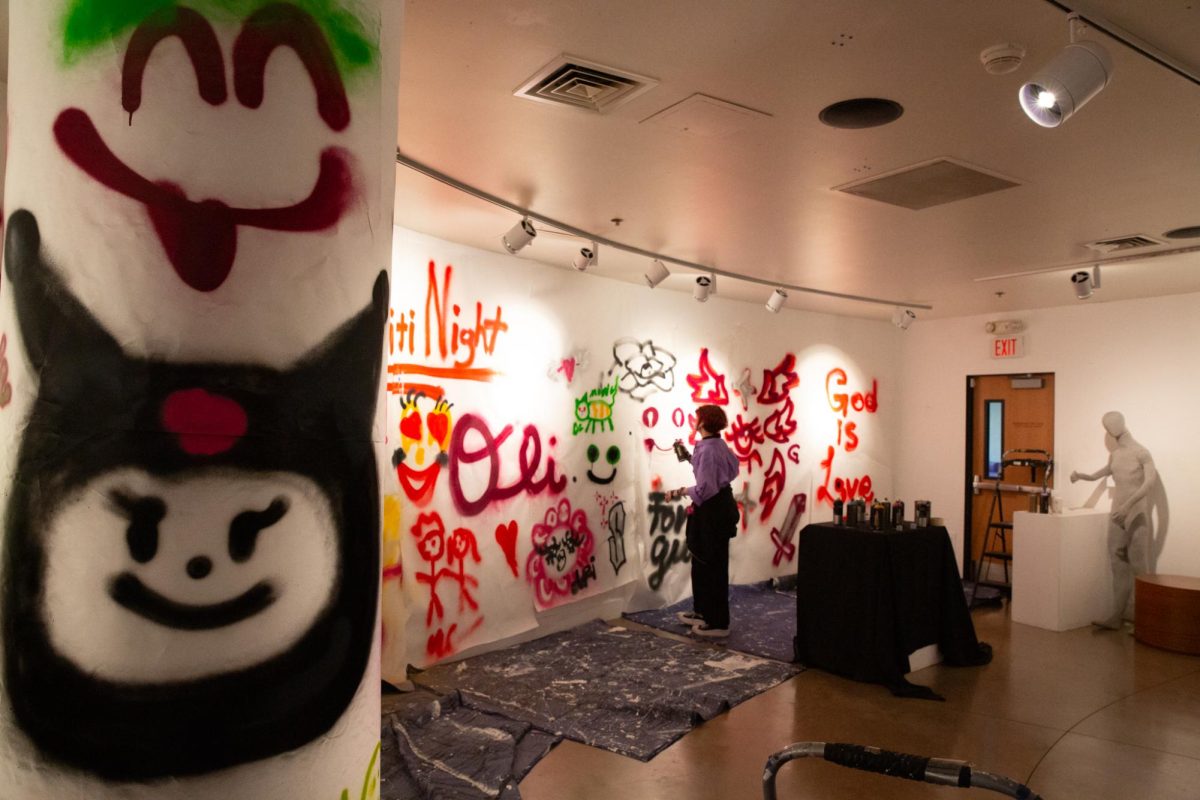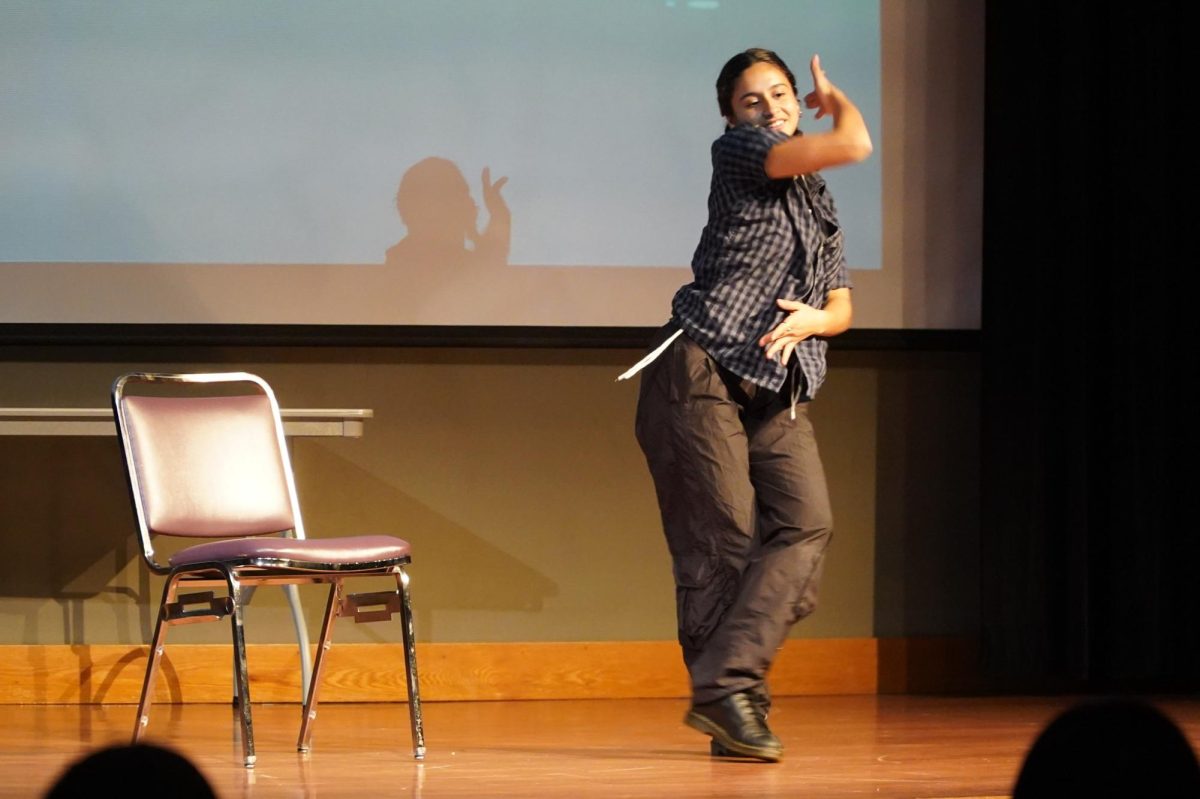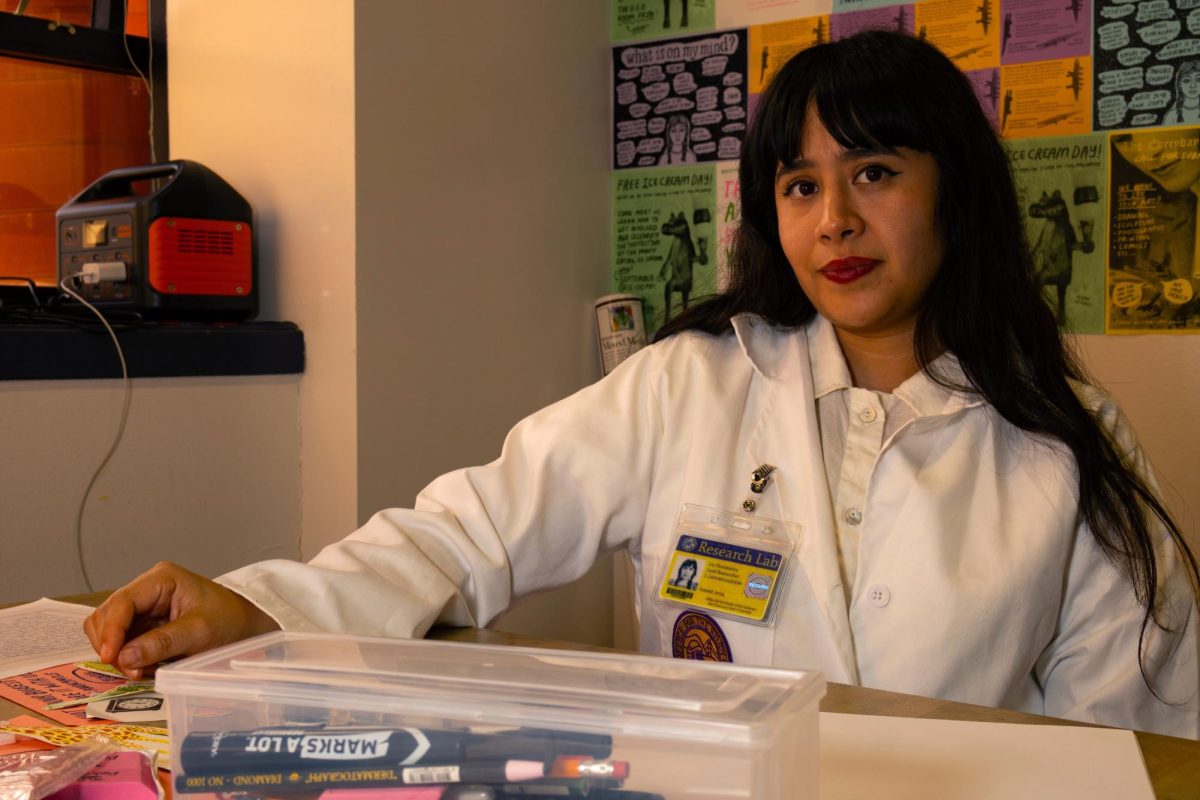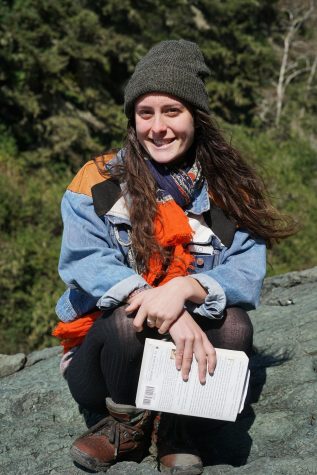A symmetrical pattern of angular shapes spiral across the screen and reveal the first glimpses of Lalin St. Juste, frontwoman of the Bay Area-based band The Seshen. This time she’s not with the band, but collaborating with Nu:Tone, the moniker that Dan Gresham, a British DJ, goes by.
With a subtle bobbing of her head, St. Juste sings the opening lines of the song “One Day At A Time” that appeared on Nu:Tone’s January 2021 album release. With a slow build, the viewer is first teased by a dark silhouette of St. Juste dancing as it crosses the screen, later on transforming into a full shot of her letting loose in a variety of colorful outfits.
St. Juste was inspired by the feelings that the pandemic brought upon her and those around her. She said she took in the experiences that people were having whether they be positive or negative and tried to convey a message of perseverance and hopefulness — hence the song title and repeated message of “one day at a time.”
“There’s so much more we can create from this moment. There’s always going to be badness and destruction, but there’s also going to be so much that comes from that. I feel like it’s a really fun celebration of those possibilities,” she said reflecting on her inspiration behind the lyrics she wrote.
St. Juste first the pandemic as having stifled her creatively, but she has now been able to find inspiration in the change of pace and has taken time to create more music on her own. She is finishing up a batch of EP songs she wrote in 2020 in collaboration with Zoo Labs, an Oakland-based organization that supports musicians. Most of all, she can not wait to get back to performing with The Seshen and to again experience the rush of having an audience.
Parts of this interview have been condensed for clarity
Q: What is it like being a part of The Seshen?
A: It’s really fun having a group of people that you’re connected to in this particular way. We have a very effortless way of writing together or spending time together. Everyone has their space and their role. The bulk of the songwriting happens between me and Aki, who also plays the bass and produces a lot of the music. We’ll be around each other, just writing and creating and composing, and then we’ll share our ideas with the rest of the band. I just feel very grateful that we can do what we do in such a fun and effortless way.
Q: When did you realize that making music and singing was what you wanted to do with your life?
A: It was something that I’ve always felt, but I didn’t necessarily realize how big of a role it would play in my life. I’ve always been drawn to music ever since I was a young child. It was a way for me to express myself in a world [that] I couldn’t necessarily figure out how to express myself in. I didn’t know how to have my voice — but music gave that to me.
Then as I got older, it became more apparent that I could pursue it and do all kinds of things that I wanted to do with it — even coming up to the Bay and deciding that I would play at BART stations for a while, [and] I would work part time. It didn’t really matter, I just needed music to be a bigger place in my life.
That paved the way for having an even bigger trajectory. Over the years, you end up building this
whole life for yourself. Now it’s been that I’ve been making music for a decade or more. People know my music, and I run into people. I have community and it just built on itself, just from going for it.
Q: What are you expressing through the music you create?
A: I just want to express who I am and what these experiences of being in this human body and in this society are like. As a person who has historically been somewhat reserved, partially from my own predisposition and then also just from how I’ve been socialized in certain ways, I found that this was a way to speak in a way that I didn’t necessarily feel comfortable.
I felt that I could find myself in my voice by singing and creating music, and giving power to myself that way. That’s sort of been a part of my overall overarching narrative about breaking silence — particularly being a Black woman, being queer, just breaking down all the ways in which I was taught to be small or to be quiet. This has been that avenue to always engage in that active resistance for myself.
Q: What artists have been inspiring you lately?
A: Well, I’m a big Erykah Badu fan. She’s influenced me, just through her essence, her vulnerability, her humor, the way she goes for art. Recently I’ve been really into a band called SAULT. I just love what they’re doing right now.
I’m also really inspired by Mélissa Laveaux, who’s actually Haitian Canadian. As someone who’s Haitian as well, I’m incorporating some of those elements. I’m really into exploring stuff in the islands, different Caribbean styles of music and things like that.
Q: How has the pandemic and quarantine affected The Seshen and you personally?
A: I was really amped up because The Seshen had just released an album; we are getting ready to do some touring and start that whole album cycle. And then quarantine happened. It was very scary. It was disappointing. I think my creativity did take a dip.
Once I got acclimated — and luckily all my basic needs were taken care of — I was able to just be fine. Now I’m in a creative spirit and I feel ready to take everything that’s been brewing [and] turn it into something.
It’s gonna make everything so much sweeter when we do get back to playing in front of an audience. It’s been over a year since I’ve sang in front of people. There’s definitely been an emotional part to that. When you’re a performer, the energy that you get from that exchange, it can be hard to not have that. We all miss it a lot.
The Seshen can be found on Instagram, Youtube and Spotify. The band’s personal website can be found here.




